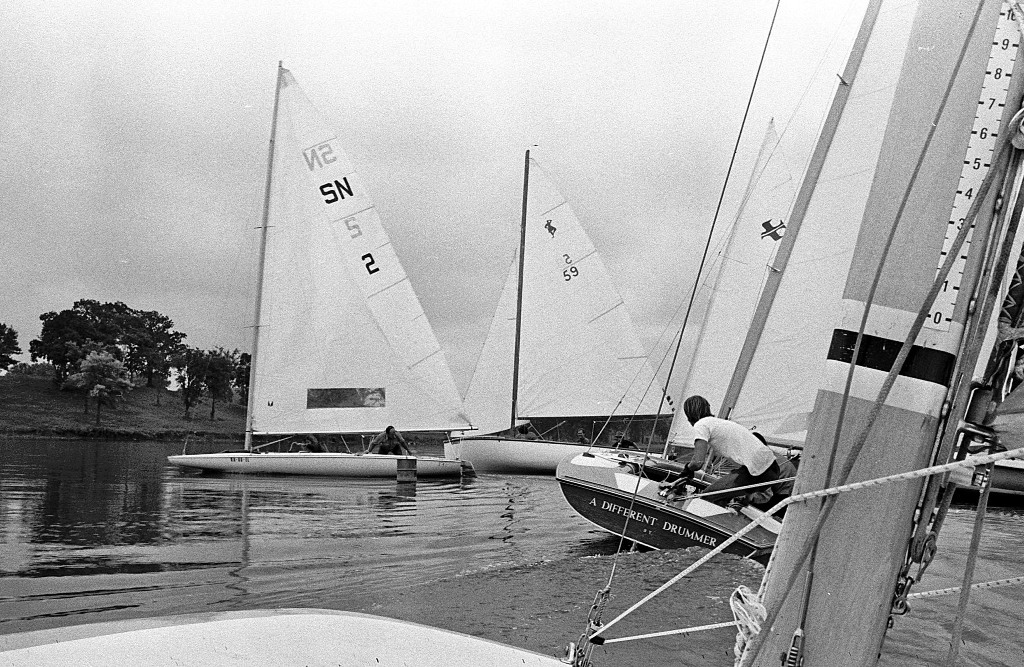
72 Jim Bell leads at No 2
Welcome to Shawnee Yacht Club
Since 1941, SYC has promoted sailing on Lake Shawnee for the recreational benefit of the local community. In addition to the opportunity to sail on beautiful Lake Shawnee, the club provides: free sailing lessons for those new to the sport, sailboats for members to use, a fenced boatyard with a boat ramp, several docks (provided by Parks and Rec), a storage shed for equipment, sailing activities, racing, and social gatherings.
Topeka, Forbes Field
35°F - Fair
Wind
Humidity
54%
At
12:53 AM
Coming Events
SYC on Facebook
Mark's Racing Blog
Weather Forecasts
The "accuweather" forecast for Sunday was winds of 5MPH with gusts of 8MPH. I think they misplaced the decimal point. Winds were more like .5 to .8 MPH. On the way out to the start of the first race, Chuck and Mark sailed a complete 360 degree circle while on the same tack. Tony lead off the line in the first race. Going into the windward mark he was on a port tack while Mark was on his stern on a starboard run.
Tony rounded first and then Mark couldn't lay the mark on port tack. Are you getting the drift of today’s races? Tony was the first to find a major hole so Mark won. In the second race, Chuck lead off the starting line an found the hole so Mark won again. Actually, condolences should go to the family of Brian Turnbull as he found a major major hole and was never seen again. Race committee Don Towle says that the wind on the high velocity days seems to be increasing factorily, so we should expect winds of 75 MPH for our next scheduled race. See you there!
Tony rounded first and then Mark couldn't lay the mark on port tack. Are you getting the drift of today’s races? Tony was the first to find a major hole so Mark won. In the second race, Chuck lead off the starting line an found the hole so Mark won again. Actually, condolences should go to the family of Brian Turnbull as he found a major major hole and was never seen again. Race committee Don Towle says that the wind on the high velocity days seems to be increasing factorily, so we should expect winds of 75 MPH for our next scheduled race. See you there!